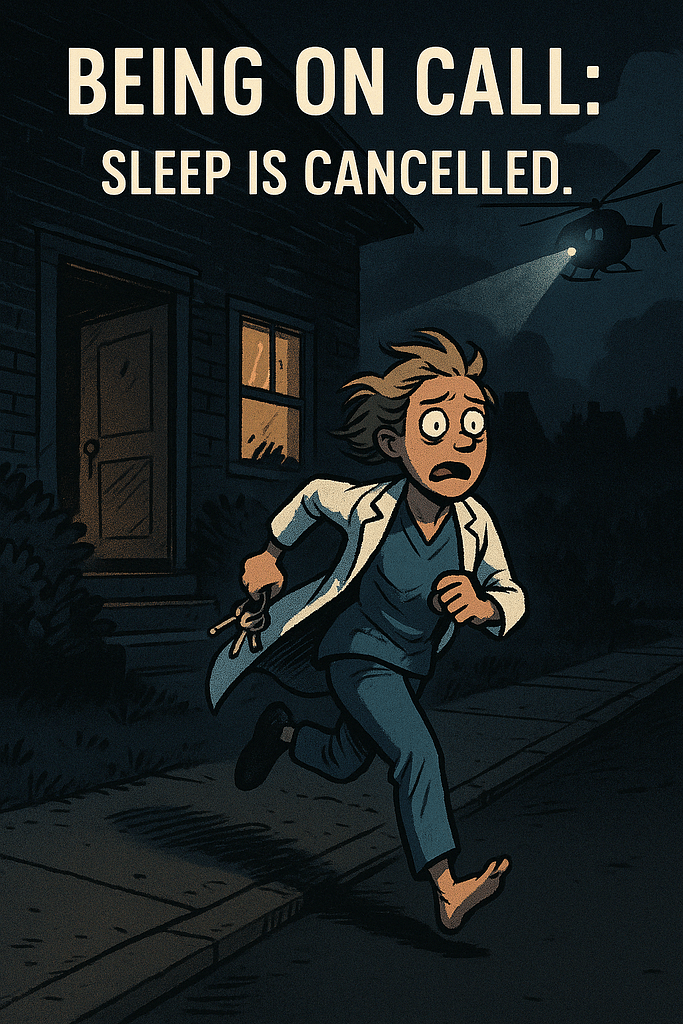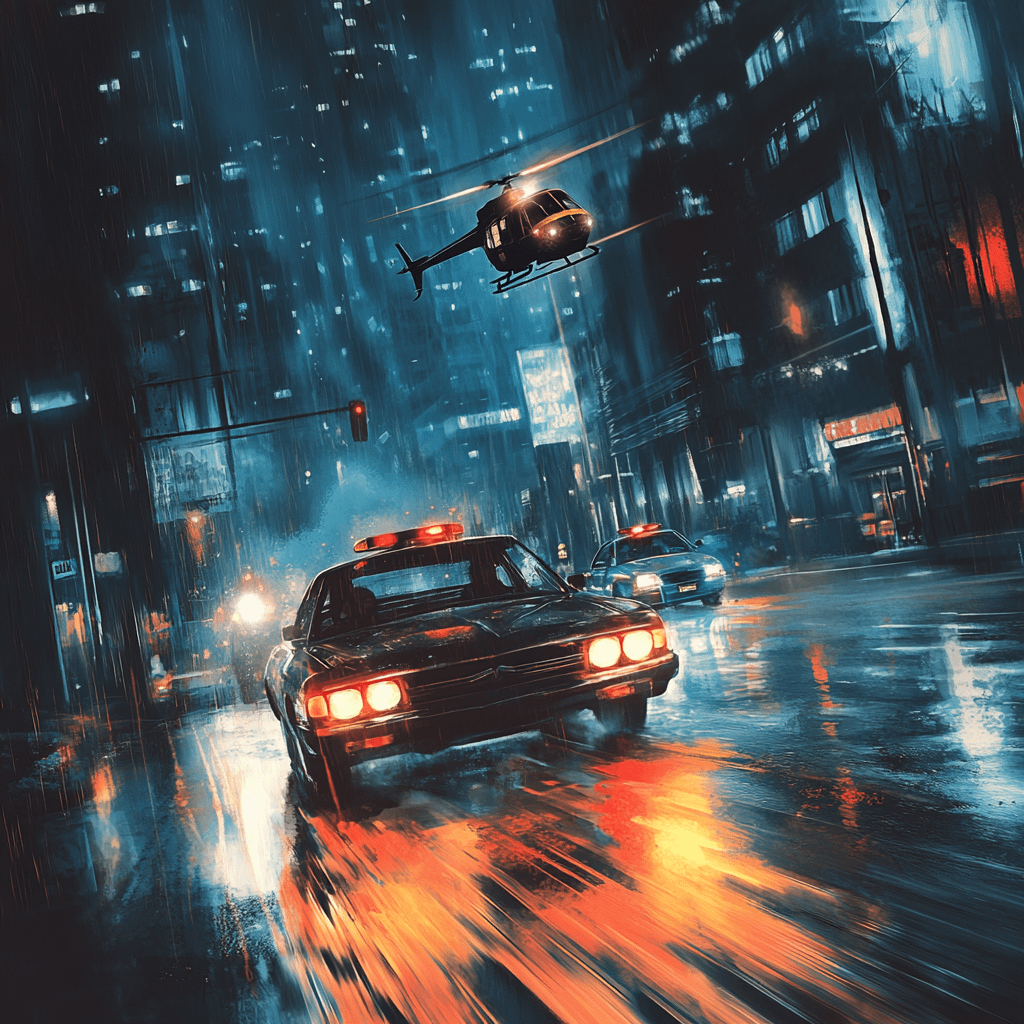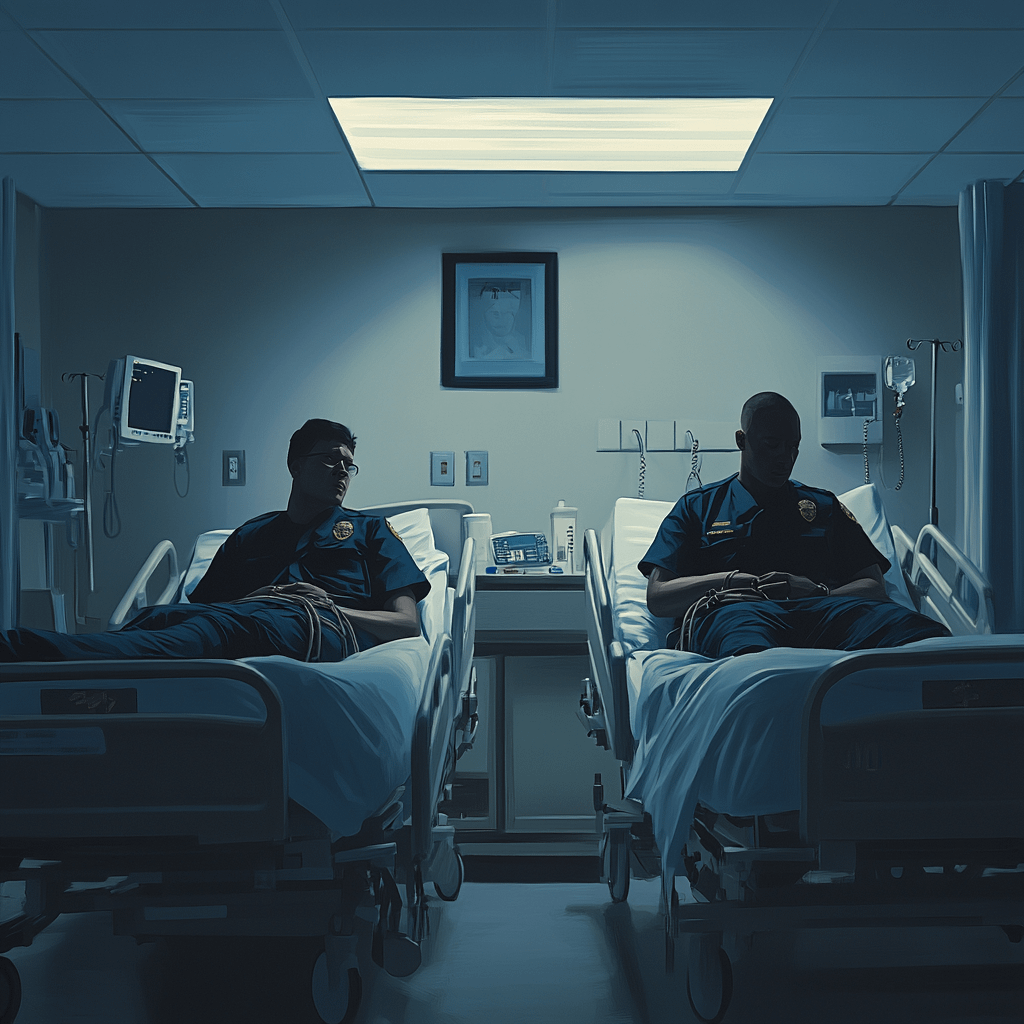Disclaimer
No actual interns were harmed in the making of this story.
(Emotionally, maybe. Physically, absolutely not.)
All events are entirely fictional.
Any resemblance to real screaming interns, panic attacks, airborne ID badges, or sedated police officers is purely coincidental — though suspiciously believable if you’ve ever survived a night being on call.
Being on call sounds heroic — until 2:00 a.m. slaps you across the face.
You wake up to your phone screaming like a dying animal.
You lurch out of bed, one eye open, brain still loading, foot slamming into a piece of furniture you’re pretty sure wasn’t there yesterday.
Somewhere in the fog, you realize an intern is on the phone, rambling about an emergency C-section like he’s live-commentating the end of civilization.
You process this information the way any seasoned doctor would: by swearing internally, reaching for pants that may or may not belong to you, and offering the highest level of professional guidance available at 2:00 a.m.:
“Clamp something. I’ll be there unless I hit a deer.”
Welcome to being on call — where personal dignity is negotiable, sarcasm is a survival mechanism, and furniture exists solely to break your toes on the way out.

Table of Contents
The intern was crying now.
Not sniffling — crying.
Full panicked breathing, words smeared together like a bad oil painting of terror.
I didn’t even try to process it.
I just jammed one foot into the nearest shoe-like object, grabbed my keys, and staggered out the door looking exactly like what I was: a barely sentient creature whose last two brain cells were arguing about whether pants were optional.
The night hit me like a cold slap.
Not crisp. Not refreshing.
Cold in the “I hope a meteor finishes the job” kind of way.
I hurled myself into the car, engine screaming awake like it, too, was unhappy to be involved.
Red light at the end of the street?
Cute suggestion.
I punched the gas anyway, because somewhere a terrified intern was probably trying to negotiate with the placenta.
That’s when I heard the siren.
Of course.
Perfect.
A cop pulling out behind me, flashing blue like he just won a jackpot.
Fantastic. Exactly what I needed: to explain to Officer Friendly why I was barefoot, wearing a scrub top backwards, and driving like someone who escaped from a psychiatric hold.
Still Standing? Try Surviving These:
Helicopters, Cops, and One Shaking Intern
I did what any reasonable healthcare professional in my situation would do.
I ignored him.
Technically, I slowed down a little.
Not enough to call it “compliance,” but just enough to suggest I had briefly considered the law.
He followed.
Persistent little guy.
I signaled left, then right, then left again — not because I was trying to evade, but because I genuinely forgot which way the hospital was for a second.
The flashing lights stayed glued to my bumper like regret to a student loan.
I considered calling the hospital to let them know I’d be arriving with an escort.
Maybe they’d roll out a red carpet.
Maybe they’d just wheel a psych evaluation cart straight to the ambulance bay.
Both felt equally likely.
I blew through the first red light like it owed me money.
The cop latched onto my bumper instantly, sirens blaring like I’d just robbed a bank.
Above, a helicopter dipped lower, its spotlight chasing me like an angry god with poor aim.
Second red light.
Ignored with malice.
The streets blurred by — broken asphalt, abandoned fast food bags doing laps around potholes, a drunk raccoon giving me a thumbs-up.

Typical Scenery for Being on Call at 2 a.m.
The hospital finally clawed its way into view, flickering neon slumped over the entrance like a corpse nobody had the energy to move.
I yanked the wheel into the ambulance bay.
The tires shrieked.
The car coughed and died with the enthusiasm of a middle-aged smoker.
I was already out the door mid-roll, ID badge hurled backward at the cops without slowing down.
“Emergency! Arrest me later!”
Sliding doors whooshed open just in time to catch my half-dressed, half-conscious sprint.
Inside — the smell of antiseptic, burnt coffee, and poor life choices.
And there he was.
The intern.
Standing rigid in sterile gown and gloves, mask askew, entire body visibly trembling like a tuning fork.
In his outstretched hand, he held a coffee mug.
My coffee mug.
The hand was shaking so badly the coffee inside was sloshing up the sides, threatening to escape.
A team of nurses descended on me like NASCAR pit crew — stripping off my road-dirty clothes, jamming a sterile gown and gloves on me at full speed.
The intern, still shaking, somehow managed to thrust the mug toward me mid-meltdown, like an ancient ritual offering to a furious god.
I locked eyes with him.
If sarcasm had mass, he would’ve been crushed under ten metric tons of it.
I snatched the coffee from his trembling hand without a word and turned toward the OR.
Some nights, being on call feels like service.
Other nights, it feels like war.
Tonight?
It felt personal.
Three Seconds to Save a Life (and Ruin an Intern)
I crashed through the OR doors like a drunk missile in a wrinkled sterile gown.
Lights slapped my eyes.
Air stank of iodine and anxiety.
The scrub nurse shoved gloves onto my hands mid-stride.
Someone half-tied my gown as I made for the table like I had unfinished business with God.
Patient prepped.
NICU team locked and loaded by the warmer, masks on, hands ready.
Scalpel slapped into my palm.
I didn’t slow down.
“Intern,” I barked, barely sparing him a glance, “talk me through.”
His voice cracked on impact.
“Uh— skin— uh— incision— uh— deeper— muscle— uh— uterus— fluid— baby— I think—”
“Good enough,” I grunted, slashing down through the layers like opening a cursed present.
“Amniotic fluid about to spray,” I said calmly as a warning to nobody in particular.
“Duck and cover if you enjoy dry scrubs.”
Warm gush.
Hands in.
Tiny shoulders found.
Baby out.
Three seconds.
The NICU team moved as one — grabbing, suctioning, securing.
The baby screamed — loud, furious, offended.
Honestly? Same.
I kept sewing, my hands on autopilot, brain still locked on sarcasm.
“Intern,” I called out without looking, “you remember where the bladder is, right?”
A strangled squeak.
“Don’t worry,” I muttered, “if I find it with the scalpel, you’ll be the second one crying.”
Layer after layer, closing fast, clean, brutal.
“Two units crossmatched?” I asked toward the ceiling.
“Yes, doctor!” a voice answered.
“Fantastic. Bring them. I don’t trust this uterus any more than I trust that raccoon from the street.”
Suturing finished.
Bleeding stopped.
The room, once frozen in terror, finally moved again — nurses clearing instruments, NICU stabilizing the furious, screaming baby.
I tied the last knot, straightened up slowly, every joint complaining.
Behind me, the intern was still standing there, vibrating slightly, face the exact color of a ghost who realized they forgot to pay taxes.
“You,” I said, pulling off a glove with a snap, “are buying me coffee for the rest of your natural life.”
No one laughed.
Too tired.
Too real.
Exactly how being on call should feel.

When the Cops Needed a Sedative
I stripped off my sterile gown and gloves, dumped them into the bin, and pushed out through the OR doors.
The hallway smelled like bleach, burned adrenaline, and regret.
I expected paperwork.
Maybe some yelling.
Maybe an angry administrator foaming at the mouth.
Instead, I got…
this.
Two uniformed cops, slumped onto hospital beds, tied down with four-point restraints like psychiatric admissions.
IVs running wide open.
Nurses calmly charting vitals like they did this every day.
One nurse looked up as I stumbled past, mask dangling from one ear.
“Oh, hey, doctor,” she said casually, clicking her pen. “They got a little aggressive after you ran inside. We had to… intervene.”
I blinked.
She shrugged.
“They’re stable. We gave ‘em a little something to help them rest.”
I glanced at the nearest cop — mouth open, drooling slightly, one boot hanging half-off the bed.
Typical.
Exactly the kind of professionalism you can expect at 3 a.m. on a Tuesday while being on call.
I gave the nurse a tired thumbs-up.
“Save me a dose for later.”
She winked.
“Already labeled one ‘For Emergency Use Only.'”
I kept walking.
Some battles you fight with scalpels.
Some you win with syringes and plausible deniability.
Tonight, we won both.

Another Night, Another Set of Scars
I finally made it back to the staff room, peeled off the last remnants of dignity, and collapsed into the world’s saddest chair.
The coffee machine was blinking “ERROR” at me like it, too, had given up on life.
No one spoke.
Some nights, you laugh it off.
Some nights, you fight it off.
And some nights, you just sit there smelling faintly of iodine, bad decisions, and a small victory that no one outside these walls will ever understand.
This was one of those nights.
What Being On Call Really Looks Like
Being on call isn’t glamorous.
It isn’t hero speeches and slow-motion surgeries with emotional background music.
It’s red lights ignored at 2 a.m.
It’s sarcasm weaponized as a coping strategy.
It’s throwing your ID at cops, cutting a baby out in three seconds, and pretending like any of this makes sense.
It’s chaos, exhaustion, terror, and — somehow — survival.
If you’re lucky, everyone lives.
If you’re really lucky, someone else brings the coffee next time.
Still Dreaming of Being On Call?
Think you’re ready for this glamorous life?
Go ahead.
Join the madness.
Bring coffee, bring sarcasm, bring your absolute worst pair of shoes —
because at 2 a.m., that’s what really saves lives.
And maybe — just maybe — follow Propoflol for more brutally honest tales from the medical trenches.
Because if we don’t laugh about it, we’re all getting restraints and a sedative.
Your move.
